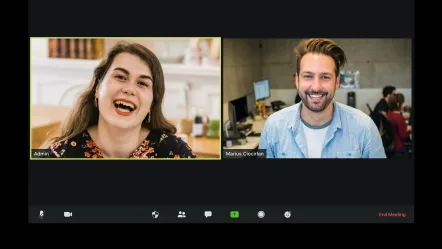Why are recruiters afraid to hire you as a programmer?

A study conducted by Prescreen in 2016 shows that the average time to hire in the IT industry is 70 days (in comparison, for warehouse employees there is only 24 days between the vacancy and the first day of work). According to recruiting experts, it is sometimes because HR managers are afraid of accidentally hiring the wrong person.
Perhaps it's because of the increasing complexity of modern technology jobs, which often involve tasks that hiring managers don't fully understand. Or it is due to the growing awareness of the calculable costs of a wrong attitude.
Due to the given uncertainty, recruiters often look for the perfect candidate and thereby lengthen the entire hiring process. If you're a developer looking for a job, put yourself in a recruiter's shoes and try to anticipate their fears. Let's find out what recruiters fear most when hiring a new developer position with the following article:
You are a serial job hopper
If you've worked less than two years in previous jobs, or have worked as a self-employed contractor for a long time, hiring managers may worry that you have a commitment or loyalty issue.
Surveys show that it takes eight months for a new employee to be fully productive. Unfortunately, many don't even see the first anniversary before they look for a new challenge. Given that a replacement can cost up to eight months' salary, many companies can't afford a tech pro who doesn't stay for at least three to five years.
By adding passion and clearly articulated career goals to your resume, you can easily get interviewed despite job hopping. Then, when you sit across from the recruiter or hiring manager, be ready to explain why you've switched more often, how your professional and personal situation has changed, and why you're now planning long-term.
Show that you are a real personality with goals and vision and not some kind of emotionless robot. This will help you to reduce fears and prejudices about your reliability with the recruiter.
If you absolutely don't mind change and you like to take risks, then consider your appearance beforehand. These personality traits can quickly give recruiters the impression that you'll be gone at the first opportunity. Better state that you like a dynamic work environment that offers you security at the same time.
Your learning curve is too steep
If you are unfamiliar with certain technologies, tools, processes or industry regulations, the HR manager will quickly fear that your lack of knowledge is slowing down the entire system and limiting your team's production.
Emphasizing your ability to learn quickly may not be enough to offset the disadvantage of a longer school enrollment period. It's better to show that you're willing to take the initiative for your own development.
Describe side projects or mention things you learned outside of work. A recruiter is more willing to take a risk for someone who has already proven that they have independently taught themselves new programming languages, methods, etc.
You're acting like a prima donna
You certainly have every right to be proud of your hard work and accomplishments. You just know what you can do and have full confidence in your own abilities.
However, there is a fine line between confidence and arrogance. Given today's team-based development approach, which depends on good team chemistry, HR managers are often reluctant to hire someone who can be difficult to work with.
Alleviate that anxiety by being proud and confident during the interview, but in a humble way.
As? Balance “I” and “we” statements throughout the interview. For example, when describing previous projects, give your teammates the credit they need first. Followed by an overview of your role and personal contribution to the project.
As an aside, it's not just executives and hiring managers who are concerned about adding someone new to the herd, future colleagues may also have something to say. So don't ignore anyone involved in the recruiting process. In group interviews, try to maintain eye contact with all participants and try to include shy participants in the conversation. You have the best chance of dispelling any misgivings and prejudices if you come across as both competent and personable.

















